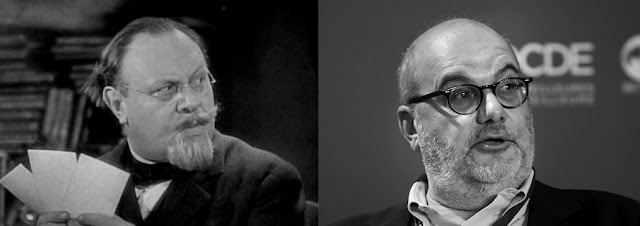The author’s (Lakicevic) path to graduate education was somewhat less flamboyant, but it is his story that I find most interesting. Both Djindjic and Lakicevic were almost totally penniless, living on irregular and minute stipends, and surviving by doing odd jobs (from construction to night clubs and smuggling), mixing up with Yugoslav and Turkish gastarbeiters, and being treated by them or accidental women they seduced to dinners and drinks.It is the contrast between the day life composed of philosophy lectures at a prestigious and orderly university, where professors appear exactly on time, give appointments one month in advance, deliver lectures on social contract, alienation, ontology, epistemology….where libraries are immense and quiet, books arrive quickly, carried by the silent helpers, and the world of the night–when our heroes return to their lair—that is striking....When the night is over, Lakicevic goes back to the world of learning where the discussion is about the best ways to organize a community, citizens’ rights and duties, working class and bourgeoisie, l’etre et le néant. But the world of the day and the world of the night have nothing in common. It is not solely that the people of the day and the people of the night have different interests and backgrounds. The two cannot be said, in any meaningful way, to belong to the same community. They are two worlds.
Naipaul saw the same duality between the whites and the enslaved and miserable African populations. In a beautiful passage he writes:
“There was the world of the day; that was the white world. There was the world of the night; that was the African world, of spirits and magic and the true gods. And in that world, ragged men, humiliated by day, were transformed--in their own eyes, and in the eyes of their fellows--into kings, sorcerers, herbalists, men in touch with the true forces of the earth and possessed of complete power... "
The quote continues but that's enough. As to whether he ignores Naipaul's racism or just doesn't get it, my bet is it's the latter.
"But the world of the day and the world of the night have nothing in common." They have nothing in common in the world of philosophical liberalism, or in the earnest Catholicism of Reed and Geuss, but in the world of history, facts and events, in the world of politics—real politics—they're as inseparable as youth and sex. "Not the idea of sex, or the meaning of sex, but sex!"
The life of the world or the life of the library.
"mixing up with Yugoslav and Turkish gastarbeiters, and being treated by them or accidental women they seduced to dinners and drinks." A classic tale of student bohemia. The tale of Djindjic climbing through the window and scaring the famous professor fits almost too perfectly.
Serendipity again. Compare that scene to this one.

No comments:
Post a Comment
Comment moderation is enabled.